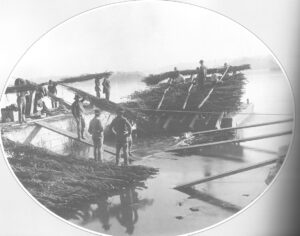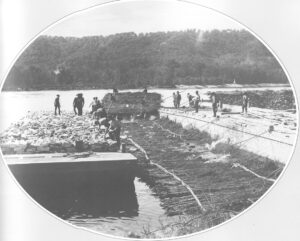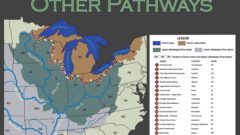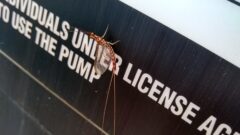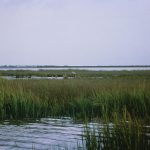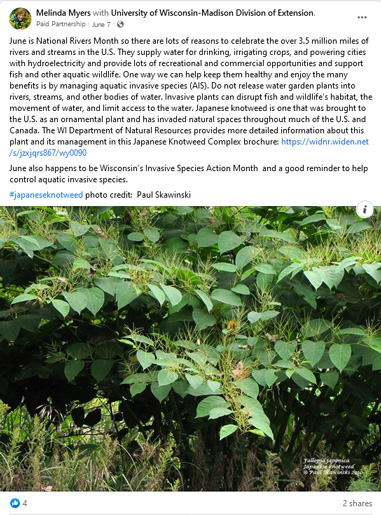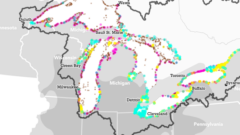Air Quality Alert issued July 16 at 7:55AM CDT by NWS
Current Watches, Warnings and Advisories for Brown (WIC009) Wisconsin Issued by the National Weather Service
https://alerts.weather.gov/cap/wwacapget.php?x=WI126654A5F13C.AirQualityAlert.126654B40C90WI.GRBAQAGRB.da5a7ed5beb109af88bb4b1c4265f55a


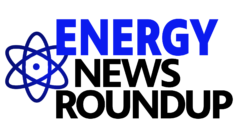
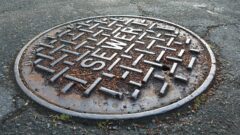

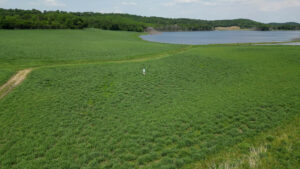
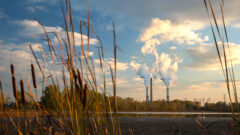
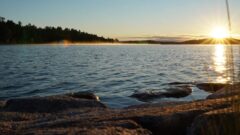
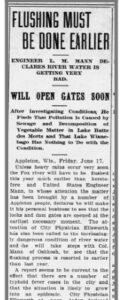 Many communities along the Fox River used the river for drinking water and even in the early 1900s pollution was a concern. This article from Appleton Post dated June 23, 1910, outlines the conditions on the river and Little Lake Butte des Morts. At the time, wastewater treatment was still 20-30 years into the future and communities dumped sewage directly into the river. Residents and city leaders were always watching for cases of Scarlet Fever and other water-borne infections.
Many communities along the Fox River used the river for drinking water and even in the early 1900s pollution was a concern. This article from Appleton Post dated June 23, 1910, outlines the conditions on the river and Little Lake Butte des Morts. At the time, wastewater treatment was still 20-30 years into the future and communities dumped sewage directly into the river. Residents and city leaders were always watching for cases of Scarlet Fever and other water-borne infections.